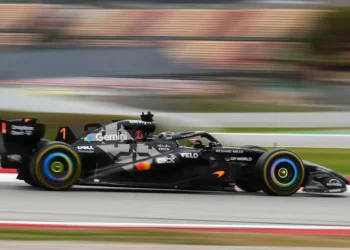Hello, how are you doing today? I hope you are having a great day!
I’m doing well, thank you for asking. How can I help you today?
The problem, which also affected the Williams customer team, but not McLaren and Aston Martin, left the team perplexed. During the recent Bahrain Grand Prix, the Mercedes cars, driven by George Russell and Lewis Hamilton, faced unexpected overheating issues, resulting in a fifth and seventh place finish, respectively. The problem, which also affected the Williams customer team, but not McLaren and Aston Martin, left the team perplexed. James Allison, Technical Director of Mercedes, expressed the team’s perplexity, stating: “This was the biggest unanswered question of the weekend. We experienced significantly higher temperatures during the race than we had predicted.” Allison highlighted the difficulties in accurately predicting cooling needs, noting that the conditions during the weekend were unexpectedly different from what had been encountered during winter testing and practice sessions. Despite precise weather forecasts and familiarity with cooling levels, the cars still overheated, deviating significantly from the expected temperatures. “The fact that we were off by more than a few degrees is highly unusual and quite damaging,” commented Allison, emphasizing the negative impact on car performance and the need to minimize engine damage by reducing power. The overheating not only required changes in driving style but also compromised tire temperature and lap times. Allison emphasized the urgency of identifying and resolving the cause to prevent recurrences. Toto Wolff, head of the Mercedes team, estimated the impact to be a loss of approximately 0.5 seconds per lap, while Andrew Shovlin, on-site engineering director, confirmed a significant deficit in lap time, albeit slightly variable. Shovlin also speculated on the potential results if the overheating issue had not occurred, especially for Russell and Hamilton, who faced additional challenges due to their starting positions and tire management issues. Mercedes is now focused on investigating the limited factors that may have contributed to the temperature increase, with the aim of correcting the issue and avoiding future performance setbacks. This situation highlights the narrow margins in Formula 1 races, where even small calculation errors can have significant effects on race results.










